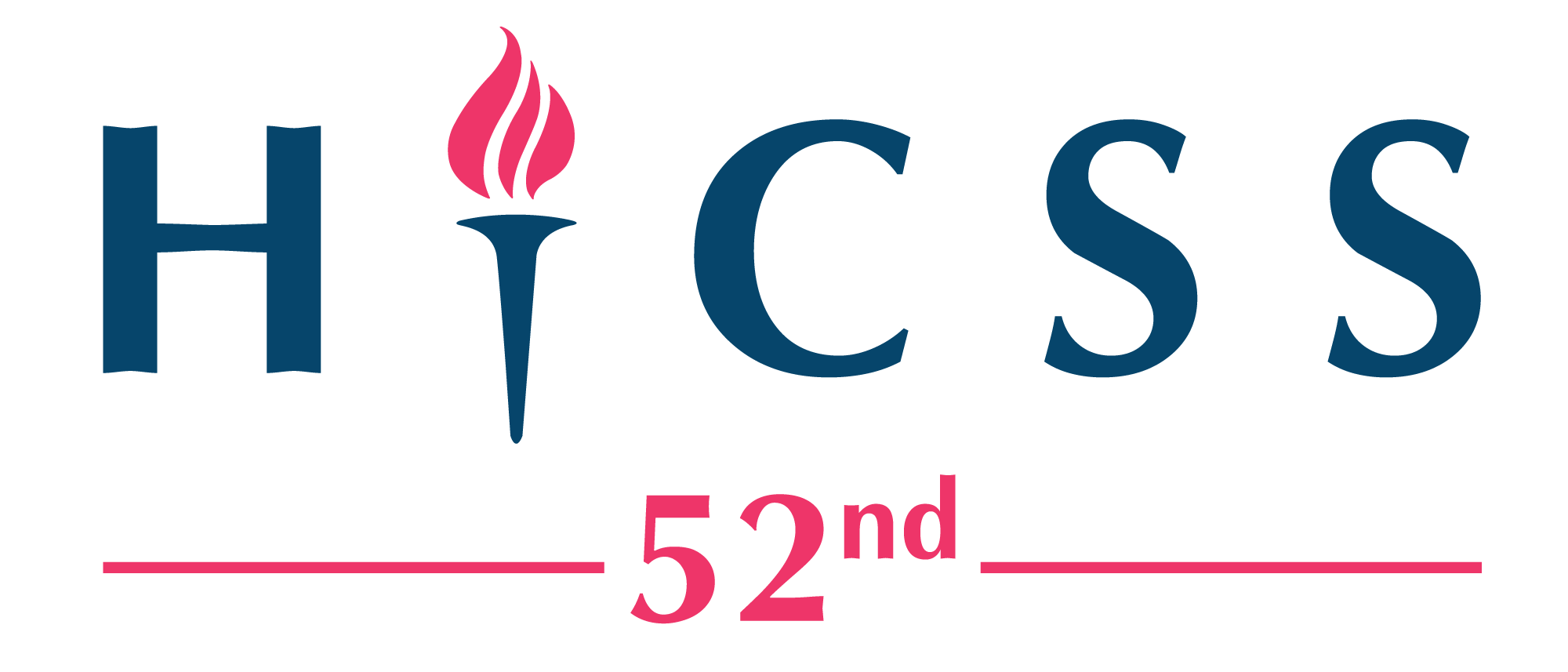HICSS - 52 Digital Government Track
52nd Hawaii International Conference on System Sciences
January 8-11, 2019 - Grand Wailea, Maui, HI, USA
Overview
Minitracks
Tutorials and Workshops
Other Links
Dark Digital Government: Exploring the Dangers — Issues, Concerns, and Negative Impacts



Minitrack Description
As a field of study, Digital Government research has studied government practice, policy implications and frameworks, technologies, governance, engagement, and other matters related to technology-enabled government. Research has focused on a multitude of topics, including inter-operationalization, administrative modernization, citizen engagement, transparency and openness, participation in democratic processes, and more.
Broadly, much of the published research identifies a range of challenges and opportunities that digitally-enhanced government brings with it in general, and on modern platforms such as social media in particular. Little, if any, attention has been given, for example, to the:
- Rise of anti-democratic uses of social media by governments and political figures.
- Mainstream (as opposed to in the context security efforts) citizen surveillance possibilities of interoperational digital government systems.
- "Closing" of government through selective and/or altered release of government data.
- Attacks on government institutions and credibility by the governing via digital platforms such as social media.
- Undermining of official government communication channels through the use of alternative channels.
- Potential attacks on democratic elections and leaders though falsified content on social media platforms.
- Use of public-private partnerships that utilize private networks and technology infrastructures that do not conform to public sector privacy, security, public data, records retention, or other public sector legal or regulatory requirements.
This minitrack seeks papers that explore concerns with digital government applications, implementations, and practice.
More specifically, the minitrack seeks research papers, essays, case studies, and/or reviews that attempt to answer the following types of questions:
- Are there potentially harmful applications and uses of digital government to the institutions of government, citizens, and others in the public sphere?
- Can social media platforms potentially harm democracies in general and participatory democracy in particular? In what ways?
- What strategies, policies, and other efforts can, do, or should governments, citizens, civic groups, and others engage in to ensure democratic principles in the face of potential threats from technology-enabled government?
- What are the implications for adopting innovative uses of social media from non-government contexts to the government context?
- Are social media platforms increasingly another branch of government that require 'checks and balances'?
- What are the implications for government use of digital technologies that provide inaccurate information to the public and/or sound false alarms in emergency or security-related matters?
- What are the considerations and implications for open, but potentially biased, data?
- How do governments engender trust in the institutions of governments in an era of false news and "alternate facts" increasingly promoted and enabled via digital sources?
Minitrack papers should be submitted online via the HICSS submission system by June 15, 2018.
More information on the minitrack chairs:
Paul Jaeger, Ph.D., J.D., is Professor and Director of the Master of Library Science (MLS) program of the College of Information Studies. In addition, Paul serves as the college Diversity Officer and Co-Director of the Information Policy and Access Center at the University of Maryland. Dr. Jaeger’s research focuses on the ways in which law and public policy shape information behavior, particularly for underserved populations. He also researches disability and accessibility, information and human rights, e-government, and social theory of information.
John Bertot Ph.D./Syracuse, is Professor at the University of Maryland's College of Information Studies. He also serves as Co-Director of the Information Policy & Access Center. His research and teaching focus on information policy, equitable access, and public service innovation. He served as editor of Government Information Quarterly from 2000-2015, and is past-president of the Digital Government Society.
Frank Bannister, Ph.D., is a Fellow Emeritus and adjunct Associate Professor in Information Systems at Trinity College, Dublin. His research interests include e-Government, e- Governance, e-Democracy and on-line privacy and trust, particularly as they relate to ICT in the public sector. He is co-convener of the permanent study on e-Government in the European Group for Public Administration and a former editor of the Electronic Journal of e- Government. Frank is a Fellow of the Irish Computer Society, a Fellow of the Institute of Consultants and Management Advisors, and a Chartered Engineer.
Co-Chairs
Paul Jaeger
(Primary Contact)
College of Information Studies
University of Maryland
College Park, MD 20742
Phone: 301-405-1742
Email: pjaeger@umd.edu
John Bertot
College of Information Studies
2117B Administration Building
University of Maryland
College Park, MD 20742
Phone: 301-405-4252
Email: jbertot@umd.edu
Frank Bannister
School of Computer Science and Statistics
Trinity College
Dublin 2, Rep. of Ireland
Phone: +353-1-8962186
Fax: +353-1-6770711
Email: Frank.Bannister@tcd.ie
